Thursday Nov. 2nd
11:30 – 1:3o,
In person (Arts 368) and Zoom
Join us for a conversation with people inside and outside Academia about all the feelings involved in doing Community Engaged Work in this era of constant crises. What does it mean to work with hope, care, effectiveness, and longevity?
In the current context of climate change, wars, wildfires, racial injustice, anti-2SLGBTQAI+ violence and the rise of the right-wing, how do people engaged in social change for the common good (our planet) not become despondent? How does one navigate the often slow, or long-haul process of academia, writing, and policy and community work, with the sense of urgency and immediate action required to address the immediacy of issues? Is this even possible within an academic context? Or a community context?
Join the students and panelists at the Institute for Community Engaged Research (ICER) for a conversation that makes space for the often unacknowledged feelings of guilt, despair and hopelessness that one can experience in the process of doing academic and, or, community engaged research.
For your information:
- This event will be a two-hour roundtable with a mix of students, researchers and community partners in the room.
- For those attending in person, there will be a soup lunch served (vegetarian).
Please register using this form: Registration link: https://ubc.ca1.qualtrics.com/jfe/form/SV_1B0aHMooATW0QQK
Questions: icer.ok@ubc.ca
Speakers will include:
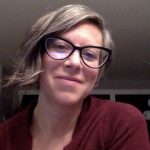 |
Robyn Bunn
Robyn Bunn is the Community Service Learning Manager at UBC Okanagan, and completed her master’s in 2015. Throughout her time at UBC Okanagan, Robyn has been involved in social justice and community activism as a member of Radical Action with Migrants in Agriculture (RAMA), Food not Bombs and various food and social justice causes. |
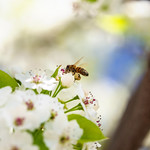 |
Mary Butterfield
Mary Butterfield is a Senior Advisor with the Clinical Trials team at the Canadian Institutes of Health Research (CIHR). Prior to joining CIHR she worked for 10 years as a research facilitator, including 8 years at the UBC Okanagan campus. While at UBCO Mary was a member of ICER, sat on the VPR’s Research Advisory Committee, and taught for both the Faculty of Management and the Interdisciplinary Graduate Studies program. She holds a PhD in Philosophy from Vanderbilt University, and has been an occasional guest armchair-theorist on various UBCO research teams. Mary has 2 kids, makes a lot of kimchi, and is grateful every day to live as an uninvited guest in Syilx territory. |
 |
Shelley Cook
Shelley has over 25 years of experience as a practitioner and senior administrator in the non-profit sector. She has worked extensively in program and community development in BC and Ontario. Prior to returning to university to complete her doctoral studies in 2014, Shelley was the Executive Director of John Howard Society in Kelowna, BC. Shelley has a PhD in Interdisciplinary Studies from UBC Okanagan. Her doctoral research examined the socio-spatial aspects of homelessness in the urban environment with focus on service and policy implications.
|
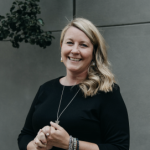 |
Melissa Feddersen
Ms. Feddersen is the Manager for Campus Wellness and Education and has worked in youth health for over twenty years and is passionate about creating healthy community where we can all flourish. Current research and action interests include social wellbeing, food security, harm reduction and mental health. Melissa is the mother of two children, owner of a giant dog and big fan of black ink on blank journal pages. |
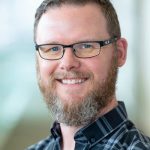 |
Dennis Jasper
I graduated with a BSN in 2000 from Okanagan University College and worked for 12 years at KGH in mental health on the acute mental health unit and mental health ICU unit. In 2010 I started as a clinical teacher in mental health for the School of Nursing at UBC Okanagan. In 2011 I was hired as a Full time Lecturer and also started my MSN program here at the UBC Okanagan campus. I graduated with my MSN in 2017. While Lecturer I have developed our 2nd year Mental Health in Nursing course, its corresponding Mental Health clinical course, and the Advanced Mental Health elective course offered in 4th year. I also teach courses on Relational Practice for nurses focused on building effective, professional, and meaningful relationships with those we provide care for. |
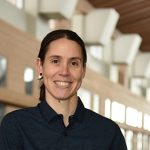 |
Dr. Onyx Sloan Morgan
My research is most often conducted in partnership with and at the direction of communities. My positionality as a queer, non-binary white settler of Irish and Scottish ancestries steers my engagement. Having grown up on unceded Lekwungen territories, my research seeks to: 1) reveal the power dynamics at the core of inequitable and oppressive structures, and 2) foreground the resistive, transformative relationalities that communities enliven every day for more just and sustainable futures. Onyx is an Assistant Professor in the Community, Culture, and Global Studies Department at UBC Okanagan, situated on ancestral and unceded Syilx Okanagan Nation territories. |
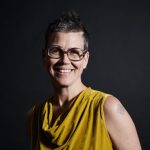 |
Dr. Astrida Neimanis
Astrida Neimanis is a cultural theorist working at the intersection of feminism and environmental change. Her research focuses on bodies, water, and weather, and how they can help us reimagine justice, care, responsibility and relation in the time of climate catastrophe. Her most recent book, Bodies of Water: Posthuman Feminist Phenomenology is a call for humans to examine our relationships to oceans, watersheds, and other aquatic life forms from the perspective of our own primarily watery bodies, and our ecological, poetic, and political connections to other bodies of water. Additional research interests include theories and practice of interdisciplinarity, feminist epistemologies, intersectionality, multispecies justice, and everyday militarisms. Astrida’s research practice includes collaborations with artists, writers, scientists, makers, educational institutions, and communities, often in the form of experimental public pedagogies. Her writing can be found in numerous academic journals and edited collections, artistic exhibitions and catalogues, and online media. Astrida joins UBCO after six years in the Department of Gender and Cultural Studies at the University of Sydney on Gadigal Land, in Sydney, Australia. |
